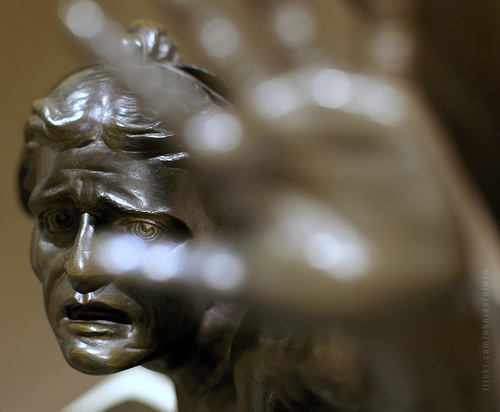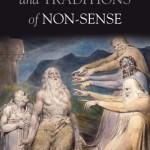We run our website the way we wished the whole internet worked: we provide high quality original content with no ads. We are funded solely by your direct support. Please consider supporting this project.

Why Did God Allow Evil?
Is it possible to force people to love? Powerful people may be able to force others to do just about anything. Through psychological or physical torture, they may succeed in forcing them to curse their own children to deny their faith. They may even succeed in forcing others to act and say loving things to them. But no one can force another person to actually love them.
But God created us, someone might respond, so he need not coerce us to love him. He could simply create us with an unquenchable desire to love him. In this case we would choose to love God simply by virtue of how we were created. I suggest that this supposition also conflicts with our experience.
Consider this analogy: Suppose I were able to invent a computer chip that could interact with a human brain in a deterministic fashion, causing the person who carries the chip to do exactly what the chip dictates without the person knowing this. Suppose further that I programmed the chip to produce “the perfect wife” and inserted it in my wife’s brain while she was sleeping. The next morning she would wake up as my idea of a perfect wife. She would feel, behave and speak in a perfectly loving fashion. Owing to the sophistication of the chip, she would believe that she was voluntarily choosing to love me in this fashion, though in truth she could not do otherwise.
Would my wife genuinely love me? I think not. Proof of this is that I (and hopefully all husbands) would eventually find this “love” unfulfilling. I would know that my wife was not experiencing these loving feelings or engaging in this loving behavior on her own. In reality, I would simply be acting and speaking to myself through this sophisticated computer chip. My wife’s behavior would not be chosen by her, so she would not really be loving me at all. She would become the equivalent of a puppet. If I want love from her, she must personally possess the capacity to choose not to love me.
If God desires a bride made up of people who genuinely love him (see Jn 17)—who do not just act lovingly toward him—he must create people who have the capacity to reject him. He must endow agents with self-determination. They, not he, must determine whether or not they will love him and each other. And this, I submit, explains why God created a world in which evil was possible. If love is the goal, it could not be otherwise. God chose to create a world in which evil is possible only in the sense that he chose to create a world in which love is possible. The possibility of evil is not a second decision God makes; it is implied in the single decision to have a world in which love is possible. It is, in effect, the metaphysical price God must pay if he wants to arrive at a bride who says yes to his triune love.
—Adapted from Satan and the Problem of Evil, pages 54-55
Image by RocPX via Flickr
Category: Q&A
Tags: Evil, Free Will, Love, Problem of Evil, Satan and the Problem of Evil
Topics: Providence, Predestination and Free Will, The Problem of Evil
Related Reading

How God is Glorified
Peter wrote, “[God] has given us … his precious and very great promises, so that through them … [we] may become participants of the divine nature” (2 Pet 1:4). With the coming of Christ, God has made a way for us to participate in the triune love that is the “divine nature.” We see this…

A Metaphysical Defense of Free Will
Warning: As the title of this post may have already suggested, this post is a bit heady – and a bit long. I’m going to get into some rather tall metaphysical grass as I go about defending free will. But for those who are interested in the free will debate and who are willing to…

God of Sense and Traditions of Non-Sense
As the title suggests, in his book, God’s Problem: How The Bible Fails to Answer Our Most Important Question – Why We Suffer, Bart Ehrman argues that the Bible has nothing compelling to say about the problem of evil. Well, I just put down a beautifully written four-hundred and fifty page book that compellingly argues…

Love That Keeps On Giving
In English, we have one word for love. In ancient Greek, there were four different words that we can translate as “love.” And each has a different meaning. Let’s consider each briefly. Storge—referred to a person’s affection for something. When we say we love our car or a person’s smile or another’s ability to sing,…

The Open View of Messianic Prophesies
Image by Lawrence OP via Flickr A number of passages speak of particular events being foreknown by God, even events resulting from individuals’ free will. For example, dozens of prophesies in the OT accurately predict details about the coming Messiah (e.g., he would be born in Bethlehem; arise out of the lineage of Abraham; be executed with…

Isn’t the World Unsafe If God Doesn’t Control Everything?
If God isn’t in control of everything, the world feels unsafe. If the future is open and if things can happen outside of God’s will, what guarantee is there that there is a point to a person’s suffering? Maybe it’s all just bad luck. My experience has been that many of those who honestly examine…
